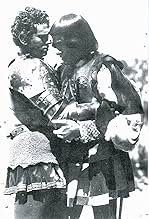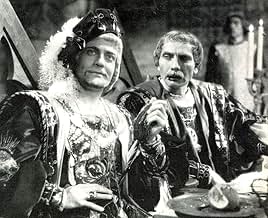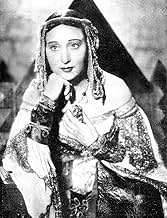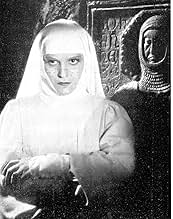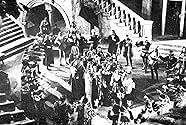ETTORE FIERAMOSCA was based on a widely-read literary action epic by Massimo D'Azeglio, published in 1833. Translated to the screen in 1938 by the most important director of the Italian fascist period, Alessandro Blasetti, it was intended to boost current patriotic fervor and pride in the Italian nation, and it contributed to a revival of Italian nationalism.
The story is set in 1500 when the southern part of the Italian peninsula was dominated by the Spanish. An invading French army, led by meanie Graiano d'Asti, fights the Spanish, among whom is Italian knightly-soldier Ettore Fieramosca. The French are beaten in battle, taken prisoners. French soldier Guy de la Motte (Osvaldo Valenti) insults the honor of the Italian fighters, essentially implying that Italians can't fight to save their lives. To get a measure of revenge, the Italians challenge the French to a 13 to 13 match jousting match to prove what mettle the Italians really have.
That challenge or "disfida" takes place in the Puglia city of Barletta, hence the subtitle of the original book, "La disfida di Barletta"---"The Challenge of Barletta." Needless to say, the Italians prove their mettle, knock their French opponents off their horses; Graiano meets his death; hero Ettore shouts "Hanno vinto gl'italiani!"---"The Italians have won!" Italian audiences of the time are said to have cheered wildly at these words.
Mixed in with this fighting and jousting is Ettore's love for Giovanna, the Duchess of Monreale. And her hand in marriage belongs to him as the ultimate trophy. Gino Cervi, popular star of the cinema of the Mussolini period, does a convincing job as Ettore. Elisa Cegani is a vision-like Giovanna. The music by Alessandro Cicognini rouses appropriately. (He would later write more poignant scores for De Sica's post-war neo-realist films.)
In New York in 1939, when the Italian population of New York was larger than that of Rome, this film played to audiences at the Broadway Cine-Roma Theatre. It is noteworthy that the Spanish are portrayed favorably here. Italy and Spain, of course, were both fascist countries and allies during the Mussolini and Franco period. The movie was understandably very popular in Spain. The hero's name, if translated becomes a very silly "Hector Proudfly."


